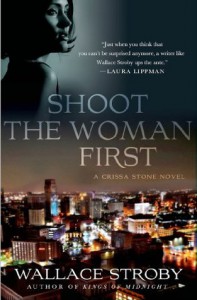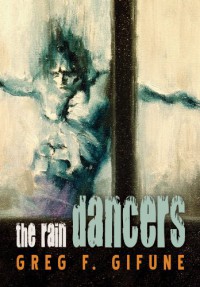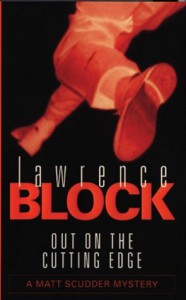
While the first book in James Sallis's Lew Griffin series,
The Long-Legged Fly, was essentially a compilation of stories during different decades in Lew's life, the second,
Moth, focuses on the time immediately following the events at the end of the 1990 section of that first book (literally picking up right where the last line in
Fly left off). Lew has realized that he's too old to be running the streets now and has quit as a private detective and is now a successful mystery author and college French instructor. After a close friend passes, he feels a responsibility to track down her runaway estranged daughter. But if the investigation itself is the most important thing to you when reading a mystery novel, then you might be disappointed in Sallis's rich work.
I found this book to be even more enjoyable than the first. Not only because now I'm more familiar with Lew and Sallis's writing style, but also because I'm discovering how meta, self-referencing, and cyclic these novels might be. Here are some examples:
1)
Moth starts off with a line that made me flip back to the last paragraph in the first book with a whole new understanding, as well as more questions! Intriguing.
2) There's a part in this novel where Lew discusses a bad review of his third novel called [b:Black Hornet|176380|Black Hornet (Lew Griffin, #3)|James Sallis|https://d.gr-assets.com/books/1312041524s/176380.jpg|1277051], which foreshadows Sallis's next book, the third in the series, one that wasn't even written for another couple of years!
3) There's also a scene where Lew interacts with an old Cajun colleague who's also a private investigator named Boudleaux. But wait a minute, the main private eye character in Lew's books is a Cajun named Boudleaux! Hmm...Lew's inspiration perhaps?
Discoveries like these make this novel and the potential for the series really fascinating. And obviously means that it's necessary to read the series in order. But even aside from that, Sallis is a lovely writer with a great knack for characterization and for turning a simple mystery into a deeper look at loss, regret, and responsibility. He's gearing up to be one of my favorite authors and I want to tackle all of his work now. And with this book, the Lew Griffin series is gearing up to be an excellent, detailed character piece. While
Fly touched on multiple parts of Lew's life, acting like an outline for Lew's entire story,
Moth and the subsequent books seem to expand more on each specific period, adding more detailed nuance and texture to a larger existential portrait of a complex man.
While I never could bring myself to accept Christian notions of sin and atonement, there's definitely something to karma. The things we do pile up on us, weigh us down. Or hold us in place, at the very least.

 I've been discovering some great authors lately and John Rector is definitely one of them. I've had him on my radar this year and I decided to start with this tight novella, which did not disappoint! This is a tense, tragic noir thriller about two men whose close friendship is put to the test after a violent altercation with drunk muggers one late night. Rector is really a natural when it comes to that great, propulsive writing that never lets up, but somehow never feels rushed. I had a lot of work to do at home today and I kept taking a break to return to this story, needing to see what happens next. Now, more of John Rector's books have rudely elbowed their way to the top of my reading list!
I've been discovering some great authors lately and John Rector is definitely one of them. I've had him on my radar this year and I decided to start with this tight novella, which did not disappoint! This is a tense, tragic noir thriller about two men whose close friendship is put to the test after a violent altercation with drunk muggers one late night. Rector is really a natural when it comes to that great, propulsive writing that never lets up, but somehow never feels rushed. I had a lot of work to do at home today and I kept taking a break to return to this story, needing to see what happens next. Now, more of John Rector's books have rudely elbowed their way to the top of my reading list!



 1
1


















